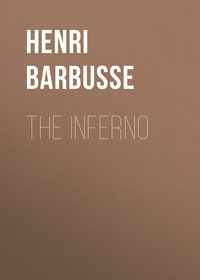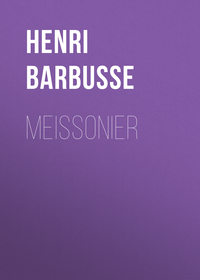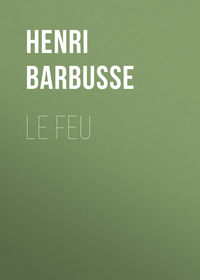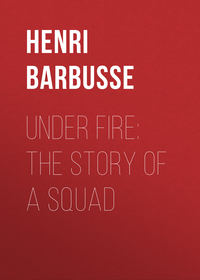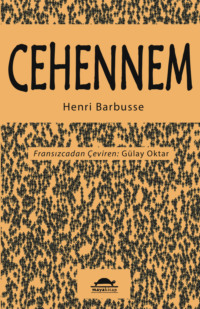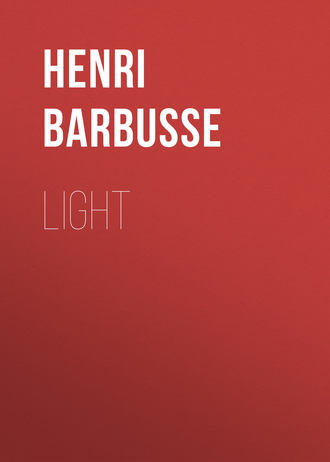 полная версия
полная версияLight
The national group is a collectivity within the bosom of the chief one. It is one group like any other; it is like him who knots himself to himself under the wing of a roof, or under the wider wing of the sky that dyes a landscape blue. It is not the definite, absolute, mystical group into which they would fain transform it, with sorcery of words and ideas, which they have armored with oppressive rules. Everywhere man's poor hope of salvation on earth is merely to attain, at the end of his life, this: To live one's life freely, where one wants to live it; to love, to last, to produce in the chosen environment—just as the people of the ancient Provinces have lost, along with their separate leaders, their separate traditions of covetousness and reciprocal robbery.
If, from the idea of motherland, you take away covetousness, hatred, envy and vainglory; if you take away from it the desire for predominance by violence, what is there left of it?
It is not an individual unity of laws; for just laws have no colors. It is not a solidarity of interests, for there are no material national interests—or they are not honest. It is not a unity of race; for the map of the countries is not the map of the races. What is there left?
There is left a restricted communion, deep and delightful; the affectionate and affecting attraction in the charm of a language—there is hardly more in the universe besides its languages which are foreigners—there is left a personal and delicate preference for certain forms of landscape, of monuments, of talent. And even this radiance has its limits. The cult of the masterpieces of art and thought is the only impulse of the soul which, by general consent, has always soared above patriotic littlenesses.
"But," the official voices trumpet, "there is another magic formula—the great common Past of every nation."
Yes, there is the Past. That long Golgotha of oppressed peoples; the Law of the Strong, changing life's humble festival into useless and recurring hecatombs; the chronology of that crushing of lives and ideas which always tortured or executed the innovators; that Past in which sovereigns settled their personal affairs of alliances, ruptures, dowries and inheritance with the territory and blood which they owned; in which each and every country was so squandered—it is common to all. That Past in which the small attainments of moral progress, of well-being and unity (so far as they were not solely semblances) only crystallized with despairing tardiness, with periods of doleful stagnation and frightful alteration along the channels of barbarism and force; that Past of somber shame, that Past of error and disease which every old nation has survived, which we should learn by heart that we may hate it—yes, that Past is common to all, like misery, shame and pain. Blessed are the new nations, for they have no remorse!
And the blessings of the past—the splendor of the French Revolution, the huge gifts of the navigators who brought new worlds to the old one, and the miraculous exception of scientific discoveries, which by a second miracle were not smothered in their youth—are they not also common to all, like the undying beauty of the ruins of the Parthenon, Shakespeare's lightning and Beethoven's raptures, and like love, and like joy?
The universal problem into which modern life, as well as past life, rushes and embroils and rends itself, can only be dispersed by a universal means which reduces each nation to what it is in truth; which strips from them all the ideal of supremacy stolen by each of them from the great human ideal; a means which, raising the human ideal definitely beyond the reach of all those immoderate emotions, which shout together "Mine is the only point of view," gives it at last its divine unity. Let us keep the love of the motherland in our hearts, but let us dethrone the conception of Motherland.
I will say what there is to say: I place the Republic before France. France is ourselves. The Republic is ourselves and the others. The general welfare must be put much higher than national welfare, because it is much higher. But if it is venturesome to assert, as they have so much and so indiscriminately done, that such national interest is in accord with the general interest, then the converse is obvious; and that is illuminating, momentous and decisive—the good of all includes the good of each; France can be prosperous even if the world is not, but the world cannot be prosperous and France not. The moving argument reëstablishes, with positive and crowding certainties which touch us softly on all sides, that distracting stake which Pascal tried to place, like a lever in the void—"On one side I lose; on the other I have all to gain."
* * * * * *Amid the beauty of these dear spots on Chestnut Hill, in the heart of these four crossing ways, I have seen new things; not that any new things have happened, but because I have opened my eyes.
I am rewarded, I the lowest, for being the only one of all to follow up error to the end, right into its holy places; for I am at last disentangling all the simplicity and truth of the great horizons. The revelation still seems to me so terrible that the silence of men, heaped under the roofs down there at my feet, seizes and threatens me. And if I am but timidly formulating it within myself, that is because each of us has lived in reality more than his life, and because my training has filled me, like the rest, with centuries of shadow, of humiliation and captivity.
It is establishing itself cautiously; but it is the truth, and there are moments when logic seizes you in its godlike whirlwind. In this disordered world where the weakness of a few oppresses the strength of all; since ever the religion of the God of Battles and of Resignation has not sufficed by itself to consecrate inequality. Tradition reigns, the gospel of the blind adoration of what was and what is—God without a head. Man's destiny is eternally blockaded by two forms of tradition; in time, by hereditary succession; in space, by frontiers, and thus it is crushed and annihilated in detail. It is the truth. I am certain of it, for I am touching it.
But I do not know what will become of us. All the blood poured out, all the words poured out, to impose a sham ideal on our bodies and souls, will they suffice for a long time yet to separate and isolate humanity in absurdity made real? History is a Bible of errors. I have not only seen blessings falling from on high on all which supported evil, and curses on all which could heal it; I have seen, here below, the keepers of the moral law hunted and derided, from little Termite, lost like a rat in unfolding battle, back to Jesus Christ.
We go away. For the first time since I came back I no longer lean on Marie. It is she who leans on me.
* * * * * *CHAPTER XXI
NO!
The opening of our War Museum, which was the conspicuous event of the following days, filled Crillon with delight.
It was a wooden building, gay with flags, which the municipality had erected; and Room 1 was occupied by an exhibition of paintings and drawings by amateurs in high society, all war subjects. Many of them were sent down from Paris.
Crillon, officially got up in his Sunday clothes, has bought the catalogue (which is sold for the benefit of the wounded) and he is struck with wonder by the list of exhibitors. He talks of titles, of coats of arms, of crowns; he seeks enlightenment in matters of aristocratic hierarchy. Once, as he stands before the row of frames, he asks:
"I say, now, which has got most talent in France—a princess or a duchess?"
He is quite affected by these things, and with his eyes fixed on the lower edges of the pictures he deciphers the signatures.
In the room which follows this shining exhibition of autographs there is a crush.
On trestles disposed around the wall trophies are arranged—peaked helmets, knapsacks covered with tawny hair, ruins of shells.
The complete uniform of a German infantryman has been built up with items from different sources, some of them stained.
In this room there was a group of convalescents from the overflow hospital of Viviers. These soldiers looked, and hardly spoke. Several shrugged their shoulders. But one of them growled in front of the German phantom, "Ah the swine!"
With a view to propaganda, they have framed a letter from a woman found in a slain enemy's pocket. A translation is posted up as well, and they have underlined the passage in which the woman says, "When is this cursed war going to end?" and in which she laments the increasing cost of little Johann's keep. At the foot of the page, the woman has depicted, in a sentimental diagram, the increasing love that she feels for her man.
How simple and obvious the evidence is! No reasonable person can dispute that the being whose private life is here thrown to the winds and who poured out his sweat and his blood in one of these rags was not responsible for having held a rifle, for having aimed it. In the presence of these ruins I see with monotonous and implacable obstinacy that the attacking multitude is as innocent as the defending multitude.
On a little red-covered table by the side of a little tacked label which says, "Cold Steel: May 9," there is a twisted French bayonet—a bayonet, the flesh weapon, which has been twisted!
"Oh, it's fine!" says a young girl from the castle.
"It isn't Fritz and Jerry, old chap, that bends bayonets!"
"No doubt about it, we're the first soldiers in the world," says Rampaille.
"We've set a beautiful example to the world," says a sprightly Member of the Upper House to all those present.
Excitement grows around that bayonet. The young girl, who is beautiful and expansive, cannot tear herself away from it. At last she touches it with her finger, and shudders. She does not disguise her pleasant emotion:—
"I confess I'm a patriot! I'm more than that—I'm a patriot and a militarist!"
All heads around her are nodded in approval. That kind of talk never seems intemperate, for it touches on sacred things.
And I, I see—in the night which falls for a moment, amid the tempest of dying men which is subsiding on the ground—I see a monster in the form of a man and in the form of a vulture, who, with the death-rattle in his throat, holds towards that young girl the horrible head that is scalped with a coronet, and says to her: "You do not know me, and you do not know, but you are like me!"
The young girl's living laugh, as she goes off with a young officer, recalls me to events.
All those who come after each other to the bayonet speak in the same way, and have the same proud eyes.
"They're not stronger than us, let me tell you! It's us that's the strongest!"
"Our allies are very good, but it's lucky for them we're there on the job."
"Ah, la, la!"
"Why, yes, there's only the French for it. All the world admires them. Only we're always running ourselves down."
When you see that fever, that spectacle of intoxication, these people who seize the slightest chance to glorify their country's physical force and the hardness of its fists, you hear echoing the words of the orators and the official politicians:—
"There is only in our hearts the condemnation of barbarism and the love of humanity."
And you ask yourself if there is a single public opinion in the world which is capable of bearing victory with dignity.
I stand aloof. I am a blot, like a bad prophet. I hear this declaration, which bows me like an infernal burden: It is only defeat which can open millions of eyes!
I hear some one say, with detestation, "German militarism–"
That is the final argument, that is the formula. Yes, German militarism is hateful, and must disappear; all the world is agreed about that—the jack-boots of the Junkers, of the Crown Princes, of the Kaiser, and their courts of intellectuals and business men, and the pan-Germanism which would dye Europe black and red, and the half-bestial servility of the German people. Germany is the fiercest fortress of militarism. Yes, everybody is agreed about that.
But they who govern Thought take unfair advantage of that agreement, for they know well that when the simple folk have said, "German militarism," they have said all. They stop there. They amalgamate the two words and confuse militarism with Germany—once Germany is thrown down there's no more to say. In that way, they attach lies to truth, and prevent us from seeing that militarism is in reality everywhere, more or less hypocritical and unconscious, but ready to seize everything if it can. They force opinion to add, "It is a crime to think of anything but beating the German enemy." But the right-minded man must answer that it is a crime to think only of that, for the enemy is militarism, and not Germany. I know; I will no longer let myself be caught by words which they hide one behind another.
The Liberal Member of the Upper House says, loud enough to be heard, that the people have behaved very well, for, after all, they have found the cost, and they must be given credit for their good conduct.
Another personage in the same group, an Army contractor, spoke of "the good chaps in the trenches," and he added, in a lower voice, "As long as they're protecting us, we're all right."
"We shall reward them when they come back," replied an old lady. "We shall give them glory, we shall make their leaders into Marshals, and they'll have celebrations, and Kings will be there."
"And there are some who won't come back."
We see several new recruits of the 1916 class who will soon be sent to the front.
"They're pretty boys," says the Member of the Upper House, good-naturedly; "but they're still a bit pale-faced. We must fatten 'em up, we must fatten 'em up!"
An official of the Ministry of War goes up to the Member of the Upper House, and says:
"The science of military preparedness is still in its beginnings. We're getting clear for it hastily, but it is an organization which requires a long time and which can only have full effect in time of peace. Later, we shall take them from childhood; we shall make good sound soldiers of them, and of good health, morally as well as physically."
Then the band plays; it is closing time, and there is the passion of a military march. A woman cries that it is like drinking champagne to hear it.
The visitors have gone away. I linger to look at the beflagged front of the War Museum, while night is falling. It is the Temple. It is joined to the Church, and resembles it. My thoughts go to those crosses which weigh down, from the pinnacles of churches, the heads of the living, join their two hands together, and close their eyes; those crosses which squat upon the graves in the cemeteries at the front. It is because of all these temples that in the future the sleep-walking nations will begin again to go through the immense and mournful tragedy of obedience. It is because of these temples that financial and industrial tyranny, Imperial and Royal tyranny—of which all they whom I meet on my way are the accomplices or the puppets—will to-morrow begin again to wax fat on the fanaticism of the civilian, on the weariness of those who have come back, on the silence of the dead. (When the armies file through the Arc de Triomphe, who is there will see—and yet they will be plainly visible—that six thousand miles of French coffins are also passing through!) And the flag will continue to float over its prey, that flag stuck into the shadowy front of the War Museum, that flag so twisted by the wind's breath that sometimes it takes the shape of a cross, and sometimes of a scythe!
Judgment is passed in that case. But the vision of the future agitates me with a sort of despair and with a holy thrill of anger.
Ah, there are cloudy moments when one asks himself if men do not deserve all the disasters into which they rush! No—I recover myself—they do not deserve them. But we, instead of saying "I wish" must say "I will." And what we will, we must will to build it, with order, with method, beginning at the beginning, when once we have been as far as that beginning. We must not only open our eyes, but our arms, our wings.
This isolated wooden building, with its back against a wood-pile, and nobody in it–
Burn it? Destroy it? I thought of doing it.
To cast that light in the face of that moving night, which was crawling and trampling there in the torchlight, which had gone to plunge into the town and grow darker among the dungeon-cells of the bedchambers, there to hatch more forgetfulness in the gloom, more evil and misery, or to breed unavailing generations who will be abortive at the age of twenty!
The desire to do it gripped my body for a moment. I fell back, and I went away, like the others.
It seems to me that, in not doing it, I did an evil deed.
For if the men who are to come free themselves instead of sinking in the quicksands, if they consider, with lucidity and with the epic pity it deserves, this age through which I go drowning, they would perhaps have thanked me, even me! From those who will not see or know me, but in whom for this sudden moment I want to hope, I beg pardon for not doing it.
* * * * * *In a corner where the neglected land is turning into a desert, and which lies across my way home, some children are throwing stones at a mirror which they have placed a few steps away as a target. They jostle each other, shouting noisily; each of them wants the glory of being the first to break it. I see the mirror again that I broke with a brick at Buzancy, because it seemed to stand upright like a living being! Next, when the fragment of solid light is shattered into crumbs, they pursue with stones an old dog, whose wounded foot trails like his tail. No one wants it any more; it is ready to be finished off, and the urchins are improving the occasion. Limping, his pot-hanger spine all arched, the animal hurries slowly, and tries vainly to go faster than the pebbles.
The child is only a confused handful of confused and superficial propensities. Our deep instincts—there they are.
I scatter the children, and they withdraw into the shadows unwillingly, and look at me with malice. I am distressed by this maliciousness, which is born full-grown. I am distressed also by this old dog's lot. They would not understand me if I acknowledged that distress; they would say, "And you who've seen so many wounded and dead!" All the same, there is a supreme respect for life. I am not slighting intellect; but life is common to us along with poorer living things than ourselves. He who kills an animal, however lowly it may be, unless there is necessity, is an assassin.
At the crossing I meet Louise Verte, wandering about. She has gone crazy. She continues to accost men, but they do not even know what she begs for. She rambles, in the streets, and in her hovel, and on the pallet where she is crucified by drunkards. She is surrounded by general loathing. "That a woman?" says a virtuous man who is going by, "that dirty old strumpet? A woman? A sewer, yes." She is harmless. In a feeble, peaceful voice, which seems to live in some supernatural region, very far from us, she says to me:
"I am the queen."
Immediately and strangely she adds, as though troubled by some foreboding:
"Don't take my illusion away from me."
I was on the point of answering her, but I check myself, and just say, "Yes," as one throws a copper, and she goes away happy.
* * * * * *My respect for life is so strong that I feel pity for a fly which I have killed. Observing the tiny corpse at the gigantic height of my eyes, I cannot help thinking how well made that organized speck of dust is, whose wings are little more than two drops of space, whose eye has four thousand facets; and that fly occupies my thought for a moment, which is a long time for it.
* * * * * *CHAPTER XXII
LIGHT
I am leaning this evening out of the open window. As in bygone nights, I am watching the dark pictures, invisible at first, taking shape—the steeple towering out of the hollow, and broadly lighted against the hill; the castle, that rich crown of masonry; and then the massive sloping black of the chimney-peopled roofs, which are sharply outlined against the paler black of space, and some milky, watching windows. The eye is lost in all directions among the desolation where the multitude of men and women are hiding, as always and as everywhere.
That is what is. Who will say, "That is what must be!"
I have searched, I have indistinctly seen, I have doubted. Now, I hope.
I do not regret my youth and its beliefs. Up to now, I have wasted my time to live. Youth is the true force, but it is too rarely lucid. Sometimes it has a triumphant liking for what is now, and the pugnacious broadside of paradox may please it. But there is a degree in innovation which they who have not lived very much cannot attain. And yet who knows if the stern greatness of present events will not have educated and aged the generation which to-day forms humanity's effective frontier? Whatever our hope may be, if we did not place it in youth, where should we place it?
Who will speak—see, and then speak? To speak is the same thing as to see, but it is more. Speech perpetuates vision. We carry no light; we are things of shadow, for night closes our eyes, and we put out our hands to find our way when the light is gone; we only shine in speech; truth is made by the mouths of men. The wind of words—what is it? It is our breath—not all words, for there are artificial and copied ones which are not part of the speaker; but the profound words, the cries. In the human cry you feel the effort of the spring. The cry comes out of us, it is as living as a child. The cry goes on, and makes the appeal of truth wherever it may be, the cry gathers cries.
There is a voice, a low and untiring voice, which helps those who do not and will not see themselves, a voice which brings them together, Books—the book we choose, the favorite, the book you open, which was waiting for you!
Formerly, I hardly knew any books. Now, I love what they do. I have brought together as many as I could. There they are, on the shelves, with their immense titles, their regular, profound contents; they are there, all around me, arranged like houses.
* * * * * *Who will tell the truth? But it is not enough to say things in order to let them be seen.
Just now, pursued by the idea of my temptation at the War Museum, I imagined that I had acted on it, and that I was appearing before the judges. I should have told them a fine lot of truths, I should have proved to them that I had done right. I should have made myself, the accused, into the prosecutor.
No! I should not have spoken thus, for I should not have known! I should have stood stammering, full of a truth throbbing within me, choking, unconfessable truth. It is not enough to speak; you must know words. When you have said, "I am in pain," or when you have said, "I am right," you have said nothing in reality, you have only spoken to yourself. The real presence of truth is not in every word of truth, because of the wear and tear of words, and the fleeting multiplicity of arguments. One must have the gift of persuasion, of leaving to truth its speaking simplicity, its solemn unfoldings. It is not I who will be able to speak from the depths of myself. The attention of men dazzles me when it rises before me. The very nakedness of paper frightens me and drowns my looks. Not I shall embellish that whiteness with writing like light. I understand of what a great tribune's sorrow is made; and I can only dream of him who, visibly summarizing the immense crisis of human necessity in a work which forgets nothing, which seems to forget nothing, without the blot even of a misplaced comma, will proclaim our Charter to the epochs of the times in which we are, and will let us see it. Blessed be that simplifier, from whatever country he may come,—but all the same, I should prefer him, at the bottom of my heart, to speak French.
Once more, he intervenes within me who first showed himself to me as the specter of evil, he who guided me through hell. When the death-agony was choking him and his head had darkened like an eagle's, he hurled a curse which I did not understand, which I understand now, on the masterpieces of art. He was afraid of their eternity, of that terrible might they have—when once they are imprinted on the eyes of an epoch—the strength which you can neither kill nor drive in front of you. He said that Velasquez, who was only a chamberlain, had succeeded Philip IV, that he would succeed the Escurial, that he would succeed even Spain and Europe. He likened that artistic power, which the Kings have tamed in all respects save in its greatness, to that of a poet-reformer who throws a saying of freedom and justice abroad, a book which scatters sparks among humanity somber as coal. The voice of the expiring prince crawled on the ground and throbbed with secret blows: "Begone, all you voices of light!"


